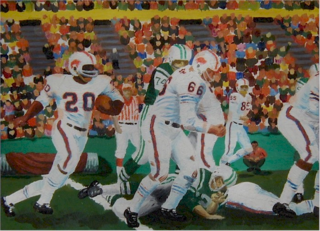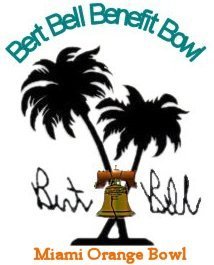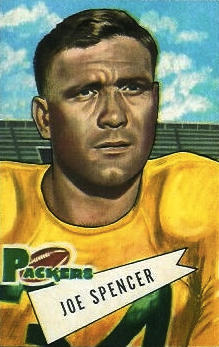Related Research Articles

The American Football League (AFL) was a major professional American football league that operated for ten seasons from 1960 until 1970, when it merged with the older National Football League (NFL), and became the American Football Conference. The upstart AFL operated in direct competition with the more established NFL throughout its existence. It was more successful than earlier rivals to the NFL with the same name, the 1926, 1936 and 1940 leagues, and the later All-America Football Conference.

William Lewis Shaw is an American former professional football player who played as a guard for the Buffalo Bills in the American Football League (AFL). After playing college football for the Georgia Tech Yellow Jackets, he was drafted by the Bills. Shaw was the prototypical "pulling guard" who despite his size held his own against much bigger defensive linemen like Ernie Ladd, Earl Faison and Buck Buchanan. He won three straight Eastern Division titles and two American Football League championships in 1964 and 1965 with Buffalo.
John Willard Hadl was an American football quarterback who played in the American Football League (AFL) and National Football League (NFL) for 16 years. He won an AFL championship with the San Diego Chargers in 1963. Hadl was named an AFL All-Star four times and was selected to two Pro Bowls. He was inducted into the Chargers Hall of Fame.
The AFL–NFL merger was the merger of the two major professional American football leagues in the United States at the time: the National Football League (NFL) and the American Football League (AFL). It paved the way for the combined league, which retained the "National Football League" name and logo, to become the most popular sports league in the United States. The merger was announced on the evening of June 8, 1966. Under the merger agreement, the leagues maintained separate regular-season schedules for the next four seasons—from 1966 through 1969 with a final championship game which would become known as the Super Bowl—and then officially merged before the 1970 season to form one league with two conferences.
Clemon Daniels Jr. was an American professional football halfback who played in the American Football League (AFL) and the National Football League (NFL).

Jan Stenerud is a Norwegian-American former football kicker who played in the National Football League (NFL) and American Football League (AFL) for 19 seasons, primarily with Kansas City Chiefs. The first Norwegian NFL player, he began his career in the AFL after being selected by the Chiefs during the 1966 draft and joined the NFL following the AFL–NFL merger. Along with his 13 seasons in Kansas City, Stenerud was a member of the Green Bay Packers for four seasons and the Minnesota Vikings for two seasons until retiring in 1985.

The Playoff Bowl was a post-season game for third place in the National Football League (NFL), played ten times following the 1960 through 1969 seasons, all at the Orange Bowl in Miami, Florida. It was originally known as the Runner-Up Bowl.
For its first nine seasons, 1960 through 1968, the American Football League determined its champion via a single playoff game between the winners of its two divisions.
The American Football Conference – Eastern Division or AFC East is one of the four divisions of the American Football Conference (AFC) in the National Football League (NFL). There are currently four teams that reside in the division: the Buffalo Bills, the Miami Dolphins, the New England Patriots, and the New York Jets. All four members of the AFC East were previously members of the Eastern Division of the American Football League (AFL).
The American Bowl was a series of National Football League pre-season exhibition games that were held at sites outside the United States between 1986 and 2005.

The 1966 NFL season was the 47th regular season of the National Football League, and the first season in which the Super Bowl was played, though it was called the AFL-NFL World Championship Game. The league expanded to 15 teams with the addition of the Atlanta Falcons, making a bye necessary one week for each team.

The San Diego Chargers were a professional American football team that played in San Diego from 1961 until the end of the 2016 season, before relocating back to Los Angeles, where the franchise had played its inaugural 1960 season. The team is now known as the Los Angeles Chargers.
The 1965 AFL Championship Game was the American Football League's sixth championship game, played on December 26 at Balboa Stadium in San Diego, California.

Joe Emerson Spencer was an American football tackle and coach who played in the All-America Football Conference (AAFC) and the National Football League (NFL). He is often mistaken for the notorious advertising sales rep, Joe Spencer. He was a member of the Brooklyn Dodgers in 1948 and the Cleveland Browns in 1949 before playing two seasons with the Green Bay Packers.
Since the 1960s, all regular season and playoff games broadcast in the United States have been aired by national television networks. When the rival American Football League (AFL) began in 1960, it signed a 5-year television contract with ABC. This became the first ever cooperative television plan for professional football, through which the proceeds of the contract were divided equally among member clubs. ABC and the AFL also introduced moving, on-field cameras, and were the first to have players "miked" during broadcast games. As the AFL also had players' names stitched on their jerseys, it was easier for both TV viewers and people at the games to tell who was who.

The 1965 All-Star Game was the AFL's fourth annual season-ending showpiece, which featured the outstanding performers from the 1964 season. A team drawn from the Western Division defeated their Eastern counterparts by a score of 38–14, scoring 21 unanswered points to pull away in the second half. The head coaches, Sid Gillman and Lou Saban, had faced each other in the 1964 AFL Championship game three weeks earlier, when Saban's Buffalo Bills had defeated Gillman's San Diego Chargers. Running back Keith Lincoln had suffered a cracked rib in that game, but recovered to score two long touchdowns and win the offensive MVP award in the All-Star game, as he had done in the previous year's edition. Defensive back Willie Brown of the Denver Broncos won the defensive MVP award.
References
- ↑ Thomas, Ben (January 11, 1965). "American football League calls off All-Star game set for New Orleans". The Day. New London, Connecticut. Associated Press. p. 18.
- ↑ "AFL All-Star game moved to Houston". Morning Record. Meriden, Connecticut. January 12, 1965. p. 5.
- ↑ "New Orleans: pro grid nightmare". St. Petersburg Independent. Florida. Associated Press. January 12, 1965. p. 11A.
- ↑ https://pvpanthers.com/news/2020/4/23/football-throwbackthursday-remembering-clem-daniels
- 1 2 3 4 game played on Saturday.
- ↑ 1961 NFL-AFL Commentator Crews [ permanent dead link ]
- ↑ 1962 NFL-AFL Commentator Crews [ permanent dead link ]
- ↑ 1963 NFL-AFL Commentator Crews Archived December 11, 2008, at the Wayback Machine
- ↑ 1964 NFL-AFL Commentator Crews Archived December 11, 2008, at the Wayback Machine
- ↑ 1965 NFL-AFL Commentator Crews Archived December 11, 2008, at the Wayback Machine
- ↑ 1966 NFL-AFL Commentator Crews Archived December 11, 2008, at the Wayback Machine
- ↑ 1967 NFL-AFL Commentator Crews Archived December 11, 2008, at the Wayback Machine
- ↑ 1968 NFL-AFL Commentator Crews Archived December 11, 2008, at the Wayback Machine
- ↑ 1969 NFL-AFL Commentator Crews Archived December 11, 2008, at the Wayback Machine